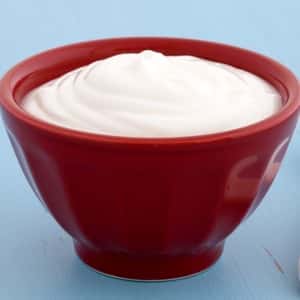
There is new evidence of the link between the gut and the brain. A pilot study conducted in Iran found that eating probiotic-rich yogurt helped people with Alzheimer disease improve their scores on standard cognitive tests.
What Did the Researchers Study?
Sixty individuals with Alzheimer disease were randomly assigned to the yogurt or the control group (30 in each group). The study yogurt contained four active probiotic species-Lactobacillus acidophilus, Lactobacillus casei and Lactobacillus fermentum along with Bifidobacterium bifidum. The control subjects consumed untreated milk. Each person got almost a cup (200 ml) of their milk or yogurt every day for three months. The participants went through cognitive testing both at the beginning of the trial and at the end.
What Did They Find?
At the end of the study, the participants who had gotten the yogurt scored modestly better on the test, while those who had gotten the milk scored slightly worse. The difference was statistically significant (p<0.001).
Those getting the probiotics also lowered their triglycerides, C-reactive protein and very low-density lipoprotein. Repairing the ecology of the digestive tract might be one approach to helping people with Alzheimer disease.
Frontiers in Aging Neuroscience, Nov. 10, 2016
It is not clear that eating yogurt containing probiotics or taking probiotic supplements will make a difference that family members of people with Alzheimer disease will notice. But consuming a cup of live-culture yogurt every day seems like a very low-risk intervention, and this study is encouraging that it might help.
Family members might also want to listen to our interview with Dr. Dale Bredesen about his multi-factorial approach to reversing dementia. We look forward to another interview with him in the spring about his forthcoming book.

